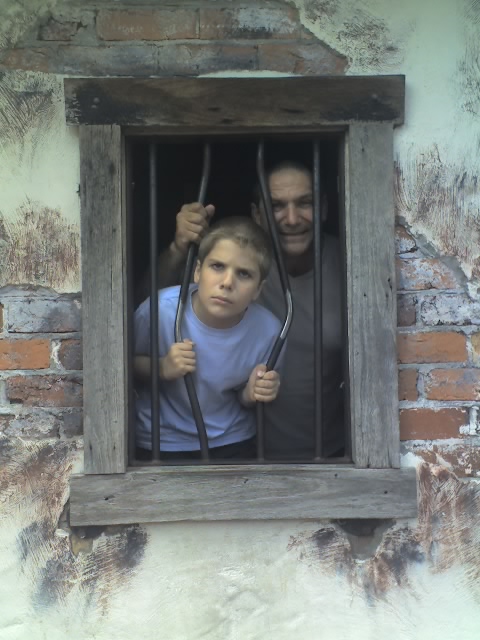
One of the first and most profound statements that I had ever read was the one by William Butler Yeats, “Education is not the filling of pail, rather the lighting of a fire.”This has been a cornerstone of our home and family along with the Scripture of Duet 6: 4-9.
I guess if I had to label the how of our home/family, I would say it is loosely based on a ‘discipleship method’ or a “Bible-Centred, Eclectic, Discipleship Based, Spirit-Led, Identity-Directed, Relational, Literature Based Learners-at-home” approach. This approach (for want of a better term) can look a lot like natural learning but in our home, has a few differences. It isn’t focused upon academics- it is spiritual and real life based; and after that comes academics. It is only after sitting with John and praying and talking about our goals or aims for our children that we have come back to this. I believe that if we have a goal then this goal will influence the how and what we do with our children. Our aim is to have children who love and reverence the Lord and abide in Him. We believe that knowledge just for the sake of knowledge puffs up and fills us with pride if not done/learned with humility and a goal of serving the Lord. The main way we try to achieve this is not on content or *what-to-teach-when* rather a focus is relationships- relationships with parents, siblings, others and God.
To me, this approach is a lot larger than simply not using workbooks or a scope and sequence. It is looking at the child’s uniqueness- his gifts and interests and trying to develop other skills from this- or using this interest as central to his development. This doesn’t mean that my children just run amok each day but it does mean that no two days look the same (although at this stage the boys do look similar).
I’m still trying to find a balance between exposing the children to things that they don’t have a natural bent for without overloading myself or tying myself to a schedule of MUST DO THIS or MUST DO THAT . Eg: Fine Arts is not something that ‘Miss A’ takes a lot of delight in but I still try to encourage an appreciation for this in her life. Listening to different forms of music, view different works of art, etc can all be used to gently enhance my family and my home but do I need to turn it into a lesson? A subject? Maybe for one child that is appropriate because of her interests and gifts (be it even wooden watches) but does the other NEED to study that? These are things that John and I have worked through and are now happy to be at a place where we can answer these questions for our own family.
This approach, for us, also means that I strive to *keep their hearts* turned toward John and I and the family. This takes time and work. I also believe that true natural learning takes a lot of work by the parents. It isn’t just a matter of letting the kids run amok and see what they learn- it is more about putting things before the children and also praying for wisdom in discovering their interests and then developing their basic skills in and around those interests.
This form of learning allows the children to pursue their own (God given) interests with my support and guidance *and* I can be included with them in this! My children are surrounded by books (lots of ’em), good TV programs and other learning resources but mainly, (and I think this is a big key) and hopefully they will see my example of loving to learn, to study. This fits in with our goal of keeping the children’s hearts as I am actively involved in their course of learning. Another benefit is that their learning isn’t as ‘artificial’ as it has been. It hasn’t necessarily been spoon-fed to them- they have dug a lot of information out for themselves.

An example of modeling learning – this is part of the naturalness of learning at home. Our children can memorise Scripture and colour in Bible pictures galore but if they don’t see us living and breathing that Truth, then what do they really learn? This doesn’t mean that we don’t use workbooks but that within the use of books, our focus is now different. Our focus is not upon WHAT we want to achieve or how much we want to read but that we view our more formal learning times as training- training the hearts of the children amidst some English, history or science lessons. (The real interesting thing is that we have shared this with the children and they understand this. Now, instead of just trying to plow through the work or books, they recognize the need for me to stop and address an attitude or behaviour. ) Anyway, it wasn’t until I could let go of ‘my‘ ideas of what we should cover and when (otherwise called a scope and sequence) that I was able to look at other ways. I never used anyone else’s S&S but nevertheless there was one: it was my own rigid but ‘original’ plan of what I wanted to do. I wasn’t homeschooling in liberty or freedom but I was in bondage- to my own plans! Rewinding my thoughts back to 6 years ago, I now see again that the ‘process of learning‘ is more important than the ‘what’ or ‘how much’ we are learning. How much of this learning is force-fed? Artificial? How much am I simply trying to fill the bucket? Is my child remotely interested in this subject or am I forcing her to do it? I think that there is a difference between becoming literate and loving to learn.
I’ve also learned (and am still learning) that this type of learning is more natural… (naturally) 😉 – we see it all the time. Students in school take the morning off to have a visit to the Fire Dept and learn about firemen and our students and learn this in the course of a trip to the supermarket when they see a fire truck on its way to a fire and we have a discussion about it. This is natural and we can accept this but we tend to draw the line with other areas. Why? I’m not saying we should or shouldn’t draw the line but it’s a good thing to ask ourselves eh? Why do we draw this line? Is it based on fear? Or a desire for academic excellence? What motivates us or drives us to feel the way we do?
When we understand that no one else will teach our children the wonderful things in the world, we realise that we have to make the most of our time. This is often best achieved as things arise naturally. When you are out in the garden and your little boy asks a zillion questions about a spider that has piqued his interest, you don’t say, “Oh, not now honey…that will come up in your science book so don’t worry about it for now.” Rather we seize the opportunity and make the most of it, explaining (or trying to) the answers to his questions. Maybe you don’t know the answer. That’s okay too especially if you answer with, “Hey honey, I’m not too sure on that one myself. What a great question. But let’s look that up in a book when we go back in the house, okay?” Through this you are modeling a lifestyle of learning…you are showing your child that even adults like to learn.
I believe that this natural approach to learning is good but I also don’t think that it is a formula. Well maybe it is touted as such but I don’t think that it should be. As homeschoolers, we are prone to latching on to formulas hoping that it will give us success. (In whatever we deem as successful). Combining the principles of natural learning and the discipleship approach (Deut 6) can be purposeful, beneficial and have its own structure or routine of learning. It need not be the random, haphazard look that often scares people away.

I too, sometimes use labels and like many, recognize the small scope that labels allow for. I think that sometimes natural learning is almost a dirty word in some circles and I think this is a shame. It’s hard not to use labels when trying to communicate to a wide variety of people, especially when one is trying to get a whole viewpoint across in as few words as possible-and to an extent labels can help us achieve that.
Living, loving and learning together…that’s our family!






I think, the first learning lesson for children should start from the house…especially for Christian family, this is a must. Parents should teach their child about how to fear and love God, as Proverb said that Fear of God is the foundation of knowledge…Sorry I forget the verse 🙂